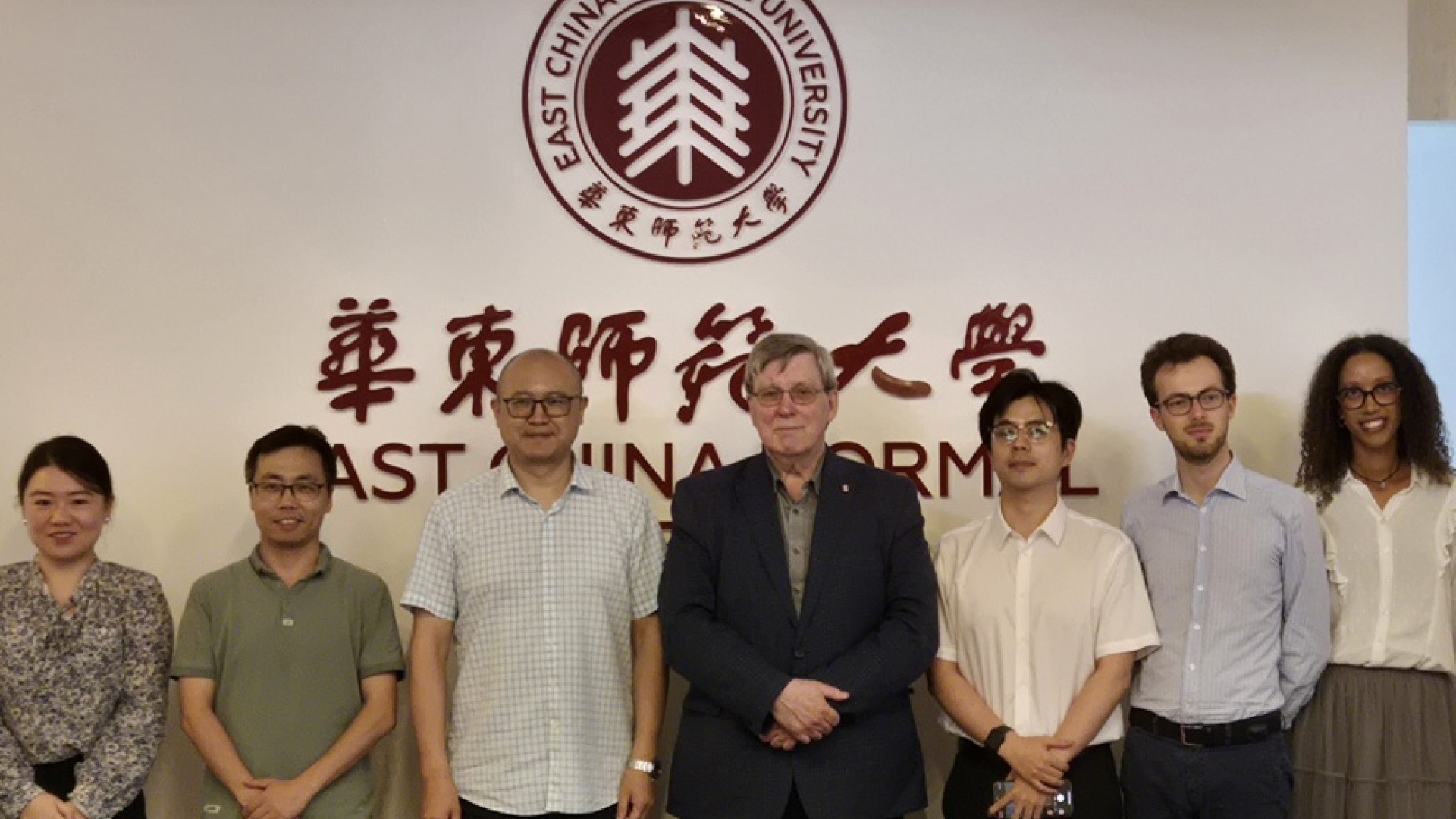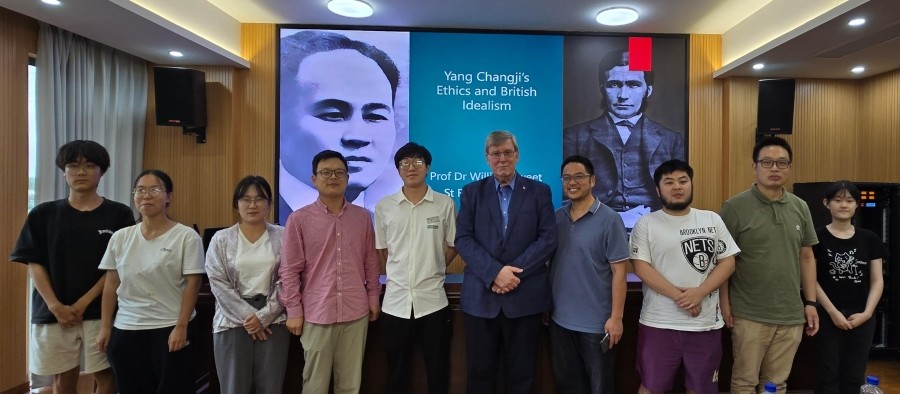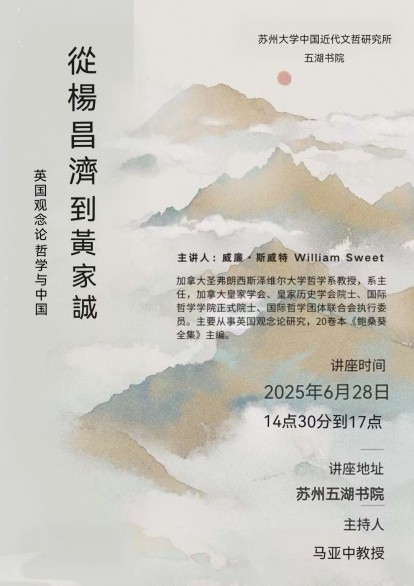
StFX philosophy professor Dr. William Sweet recently completed a two-week lecture tour in East Asia, where he spoke at five major universities in South and Southeast China.
Professor Sweet’s lectures centered on the introduction of Western ethics to China in the early 20th century, highlighting the influence of British idealism. This philosophical movement, which emerged in the late 19th century, significantly impacted various fields, including philosophy, politics, religion, social policy, and art, in Britain, its empire, and beyond.
Dr. Sweet says currently, there is a resurgence of interest in China regarding the introduction of European moral and social philosophy in China and its relevance to contemporary philosophical movements—an area in which Dr. Sweet is an expert. This interest can be seen in the development of new academic programs and new book series and journal articles in China, focused on translating key texts from British idealist philosophy.


One of the most notable philosophers who introduced Western ethics into China was Yang Changji (1871-1920), Dr. Sweet notes. After studying in Japan and Scotland, Yang returned to China in 1913, where he became a mentor to several students, including Mao Zedong. Yang's philosophical influence on Mao is well-documented, and he was also the father of Mao's second wife, Yang Kaihui. While connections between British idealist thought and Yang's work have sometimes been acknowledged, Professor Sweet has identified clear parallels between Yang's lecture notes and the writings of major British idealists. He has also demonstrated that British idealism significantly influenced several other early 20th-century Chinese philosophers, rivaling the impact of German and French thought.
Dr. Sweet’s principal host was Professor Tao Houang of Sun Yat-sen University, who assisted with invitations from universities in Xiangtan, Shanghai (Fudan University and East China Normal University), and Suzhou. As well, Dr. Sweet was able to spend time with translators who have provided new or revised translations of early British idealist works. According to Dr. Sweet, “I was impressed by the research of the scholars and the quality of the students that I met. This short lecture tour and research visit has enabled me to renew some research connections but also to explore potential future collaborations.”

